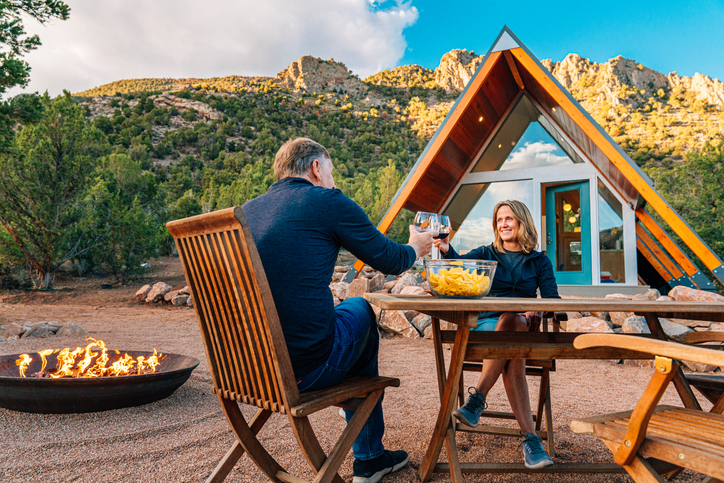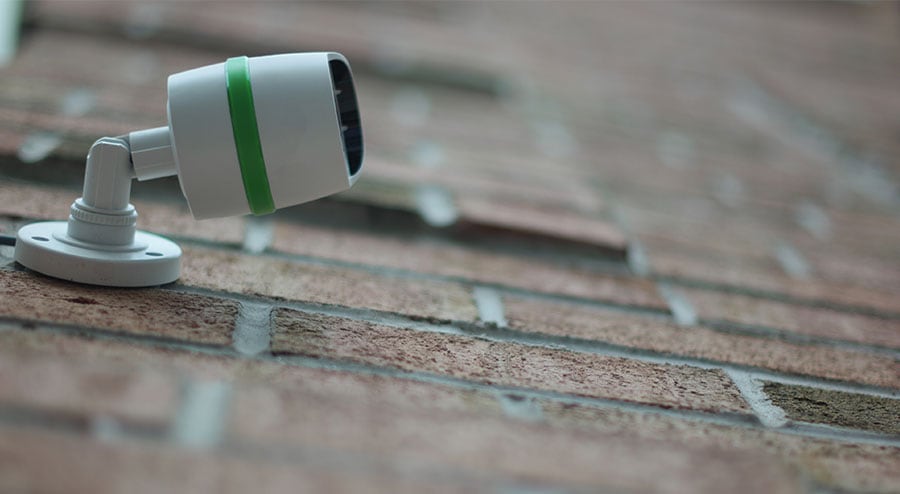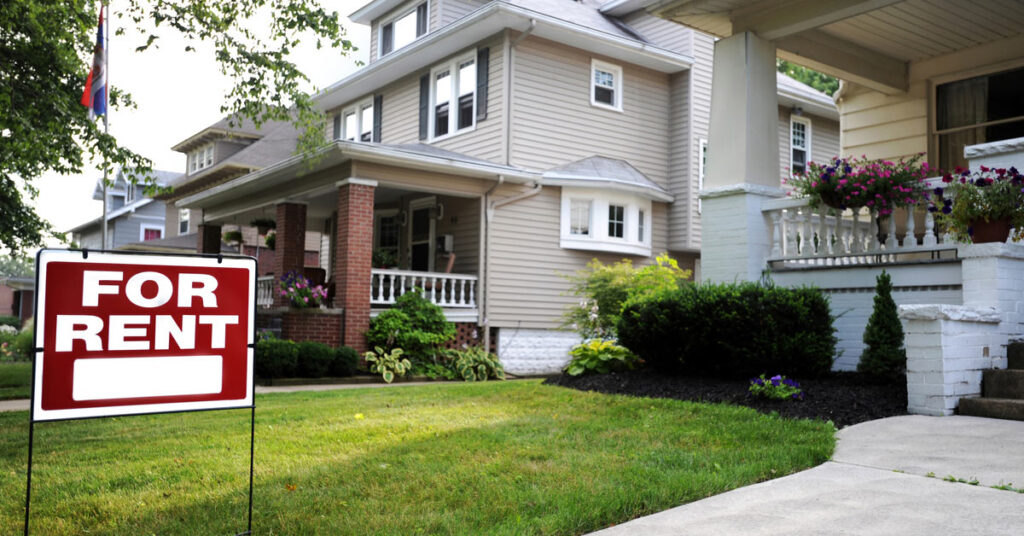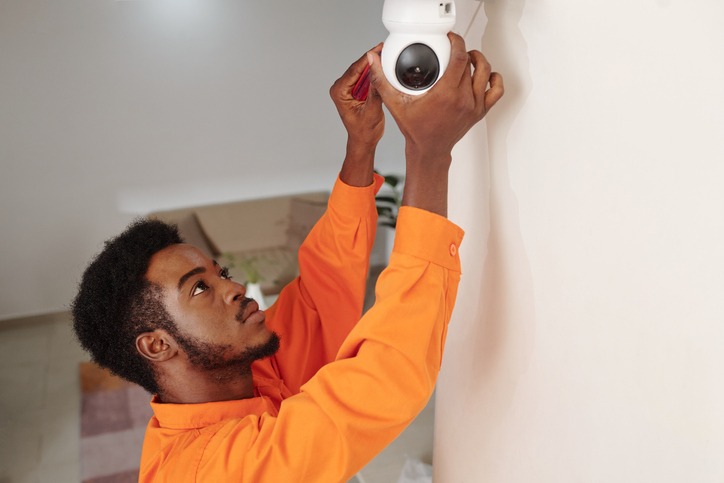As an Airbnb host, ensuring the safety and security of your property and guests is of paramount importance. With the rising popularity of short-term rentals, it becomes essential to implement effective security measures to protect your investment and provide a secure environment for your guests. This article will explore various aspects of home security specifically tailored to Airbnb hosts, covering topics such as essential security measures, guest safety, legal requirements, risk mitigation, cyber protection, and liability issues.

Implementing robust security measures safeguards your property and provides a sense of comfort and peace of mind to your guests. From installing high-quality locks and security systems to leveraging smart home technology, there are numerous steps you can take to fortify your property against potential risks. Furthermore, ensuring guest safety involves conducting thorough guest screening, educating guests about security features and emergency procedures, and promptly addressing any security concerns that may arise during their stay.
- Essential Security Measures for Airbnb Hosts
- Ensuring Guest Safety and Security
- Legal Requirements and Regulations
- Mitigating Risks and Vulnerabilities
- Enhancing Property Security
- Monitoring and Remote Security
- Cybersecurity and Online Protection
- Liability Issues and Insurance
- Resources and Training for Airbnb Hosts
- Fostering a Secure Environment for Guests
- A Recap
Balancing security measures with guest privacy is essential to strike the right balance, ensuring a positive experience for everyone involved. Following the guidelines and best practices outlined in this article, you will be well-equipped to protect your property and offer an enjoyable, secure stay for your Airbnb guests.
Essential Security Measures for Airbnb Hosts
When it comes to safeguarding your Airbnb property and ensuring the safety of your guests, implementing essential security measures is vital. Starting with installing high-quality locks for entrances and exits, hosts can establish the first line of defense against unauthorized access. These sturdy locks provide both hosts and guests with peace of mind, deterring potential intruders and securing the property.
Alongside reliable locks, utilizing security systems and cameras adds an extra layer of protection. Surveillance cameras not only act as a deterrent but also aid in identifying any suspicious activities or security breaches. Additionally, hosts can take advantage of smart home technology, such as smart doorbells and motion sensors, to enhance security further. These devices offer remote monitoring capabilities, allowing hosts to keep an eye on their property, even when they are away.
Another crucial aspect of guest safety is establishing clear guidelines for guest access. Hosts can maintain privacy, prevent accidental damage, and foster a respectful environment for both hosts and guests, by setting explicit boundaries and communicating them effectively. Ensuring guests are well-informed about security features and emergency procedures further contributes to their sense of security and comfort during their stay.
Ensuring Guest Safety and Security
To prioritize guest safety, Airbnb hosts can begin by conducting thorough guest screening processes. Implementing effective screening measures helps ensure trustworthy guests and reduces the risk of potential security issues. Utilizing information from guest profiles, reviews, and communication exchanges can provide valuable insights when making hosting decisions.
Educating guests about security features and emergency procedures is equally essential. Clear communication regarding security measures in place, such as alarm systems or safety exits, helps guests understand how to navigate the property safely. Hosts should also provide emergency contact information readily accessible to guests, ensuring quick assistance in case of unforeseen situations.
Addressing security concerns promptly and efficiently is crucial in providing guests with peace of mind throughout their stay. Encouraging open communication and being responsive to any security-related issues that may arise fosters trust between hosts and guests. Proactively handling concerns demonstrates a commitment to guest safety and enhances the overall guest experience.
Legal Requirements and Regulations
When operating an Airbnb property, hosts must be aware of the local laws and regulations governing short-term rentals. Each region may have specific requirements related to licensing, permits, zoning restrictions, and tax obligations. Being well-informed about these regulations ensures hosts can operate their listing legally and avoid potential penalties or disputes.
Compliance with safety and security standards is paramount to meet legal obligations as an Airbnb host. This includes adhering to building codes, fire safety regulations, and any other applicable safety measures. Conducting regular safety inspections, maintaining emergency exits, and providing essential safety equipment contribute to a secure environment for both hosts and guests.
Exploring insurance options is another critical aspect of legal compliance for protecting both the property and guests. While Airbnb offers some coverage through their Host Guarantee and Host Protection Insurance, hosts may also consider additional insurance policies tailored to short-term rentals. Comprehensive insurance can provide financial protection against property damage, theft, liability, and other unforeseen incidents, mitigating potential risks associated with hosting.
Mitigating Risks and Vulnerabilities
To ensure a secure hosting environment, Airbnb hosts must assess potential risks specific to short-term rentals. Conducting a thorough risk assessment involves identifying vulnerabilities in the property and the surrounding area. Hosts should consider factors like the property’s location, the presence of security measures, and past incidents in the neighborhood to minimize potential threats.
Protecting guests’ personal information and privacy is a crucial aspect of risk mitigation. Hosts should handle guest data responsibly and securely, adhering to privacy laws and regulations. Storing personal information safely and limiting access to authorized personnel are essential practices. Educating guests on privacy measures and being transparent about data handling can also foster trust and confidence.
Participating in local neighborhood watch programs or security initiatives is an excellent way for hosts to contribute to community safety. Collaborating with neighbors and law enforcement agencies can enhance the overall security of the area, creating a safer environment for both hosts and guests. Active participation in such programs can also help hosts stay informed about local security issues and receive timely updates on safety concerns.
Enhancing Property Security
Enhancing property security is paramount for Airbnb hosts to provide a safe and comfortable stay for guests. One essential step is securing outdoor areas and common spaces to prevent unauthorized access. Installing proper lighting, fencing, and surveillance cameras can deter potential intruders and enhance overall property visibility, reducing the likelihood of security breaches.
Hosts should also take measures to store and safeguard valuable items within the property to prevent theft or damage. Investing in secure lockable storage for valuable belongings and providing guests with secure storage options can help protect both hosts’ and guests’ possessions.
To further strengthen property security, hosts must implement measures to prevent unauthorized access. This includes setting up secure entry systems with unique access codes for each guest and promptly changing these codes between bookings. By limiting access and diligently managing entry codes, hosts can maintain a high level of security and ensure the privacy of their guests.
Monitoring and Remote Security
Monitoring and remote security are invaluable tools for Airbnb hosts to ensure both property safety and guest privacy. Utilizing remote monitoring systems and services empowers hosts to keep a vigilant eye on their property in real-time, even when they are not physically present. This level of surveillance allows hosts to promptly address any potential security threats, such as unauthorized access or suspicious activities, contributing to a secure environment for guests.
However, it is essential for hosts to strike a delicate balance between security and guest privacy. While installing smart home security devices like doorbell cameras and motion sensors can enhance property protection, they also raise privacy concerns for guests. Transparent communication about security features during the booking process and providing clear information on camera locations can help guests feel at ease and maintain their privacy during their stay. To respect guest privacy, it is crucial to adhere to Airbnb’s rules regarding the placement of cameras and informing guests about any surveillance measures in place.
What’s Allowed
Airbnb permits hosts to use disclosed monitoring devices solely for public spaces and common areas within their home. These devices are restricted to observing areas like the front door or driveway, or any communal space that is both clearly identified and visible. However, hosts must be transparent with guests and disclose the presence of these monitoring devices before confirming a reservation.
What’s Not Allowed
Airbnb strictly prohibits the use of concealed and undisclosed monitoring devices in common areas and any devices placed in or monitoring private spaces. Private spaces encompass bedrooms, bathrooms, and common areas used as sleeping quarters, such as living rooms with sofa beds. It is crucial for hosts to respect their guests’ privacy in these intimate spaces and refrain from utilizing monitoring devices in such areas to ensure a comfortable and secure stay for all guests.
Emergency Plans
Alongside proactive monitoring, hosts should develop comprehensive emergency plans to handle unexpected situations, such as natural disasters or emergencies. Providing guests with clear instructions on evacuation routes, emergency contacts, and safety protocols can be life-saving in critical circumstances. Familiarizing themselves with local emergency services and resources enables hosts to respond swiftly and efficiently in times of need, ensuring the well-being of their guests.
Embracing a guest-centric approach to security and being mindful of guest privacy, creates a safe and comfortable environment that instills confidence and trust in their guests.
Cybersecurity and Online Protection
In today’s digital age, cybersecurity is a critical aspect of home security for Airbnb hosts. Safeguarding against cyber threats and online scams is essential to protect not only the property but also the privacy of hosts and guests. Hosts should take proactive measures to secure their online presence, such as using strong and unique passwords, regularly updating software and firmware, and enabling two-factor authentication where possible.
Equally important is ensuring that guests’ data and privacy are protected in the digital realm. Hosts must handle guest information responsibly and securely, adhering to data protection laws and regulations. Implementing secure payment gateways and using reputable booking platforms can provide an additional layer of protection for guest data.
Airbnb hosts can mitigate the risks of online threats and create a safe digital environment for both themselves and their guests, by staying vigilant and continuously educating themselves on the latest cybersecurity practices. Emphasizing the importance of cybersecurity in house rules and providing clear communication about data protection measures further fosters trust and confidence in the hosting experience.
Liability Issues and Insurance
As an Airbnb host, understanding potential liability risks is crucial for safeguarding both the property and guests. Hosting on Airbnb involves certain legal responsibilities that hosts must be aware of to avoid legal complications. Liability risks may include property damage caused by guests, personal injuries on the premises, or violations of local laws and regulations. Being well-informed about these risks allows hosts to take proactive measures to mitigate them and provide a safe environment for guests.
Evaluating insurance options is an essential step in protecting both the property and guests from unforeseen incidents. While Airbnb offers some coverage through their Host Guarantee and Host Protection Insurance, hosts may also consider additional insurance policies tailored to short-term rentals. Comprehensive insurance can offer financial protection against property damage, theft, liability, and other potential risks associated with hosting. Hosts with adequate insurance coverage can operate with greater peace of mind and ensure that their guests are well-protected during their stay.
Resources and Training for Airbnb Hosts
As an Airbnb host, staying informed and continuously improving security practices is paramount. Fortunately, there are various resources and training opportunities available to help hosts enhance their knowledge in this domain. Airbnb provides a dedicated Safety Center with valuable information on security best practices and risk management. Hosts can access educational materials, guidelines, and safety tips to better understand and address potential security challenges.
Additionally, hosts can participate in training programs specifically designed for home security and guest safety. These programs may cover topics such as emergency preparedness, guest communication, and implementing effective security measures. Taking advantage of these resources empowers hosts to create a safer environment for their guests and mitigate potential risks effectively. By staying proactive and up-to-date with the latest security practices, hosts can elevate their hosting experience and offer peace of mind to their valued guests.
Fostering a Secure Environment for Guests
As Airbnb hosts, striking the right balance between security and guest privacy is crucial in fostering a safe and welcoming environment. While implementing robust security measures is essential, hosts must also respect their guests’ privacy and ensure they feel comfortable during their stay. Transparent communication about security features and procedures during the check-in process can alleviate any concerns and instill confidence in guests.
Providing peace of mind to guests is paramount. Guests should feel assured that their safety is a top priority, and hosts should be readily available to address any security-related questions or concerns. Creating a guest-oriented approach to security not only enhances the overall hosting experience but also builds trust with their guests and establishes a reputation for providing an exceptional and secure stay.
A Recap
Ensuring home security for Airbnb hosts is an essential responsibility that goes beyond protecting the property itself. Implementing essential security measures, such as high-quality locks, security systems, and smart home technology, allows hosts to create a safe environment for both their property and guests. Thorough guest screening, clear guidelines for guest access, and providing emergency contact information contribute to guest safety and peace of mind.
Understanding the legal requirements, liabilities, and insurance options is crucial for hosts to operate responsibly and protect their investment. Mitigating risks and vulnerabilities, both physical and digital, further fortifies the overall security of the property. Additionally, fostering a secure environment for guests by balancing security with guest privacy fosters trust and enhances the overall guest experience.
As the landscape of home security continues to evolve, continuous learning and improvement in security practices are essential for Airbnb hosts. Hosts should stay informed about the latest security trends and participate in training programs, to stay ahead of potential risks and create a welcoming environment for guests. Prioritizing home security not only protects the property but also ensures guest satisfaction, contributing to positive reviews and repeat business. Hosts that take proactive measures and embrace a guest-oriented security approach, hosts can thrive in the Airbnb community, providing a safe and memorable experience for all their guests.




